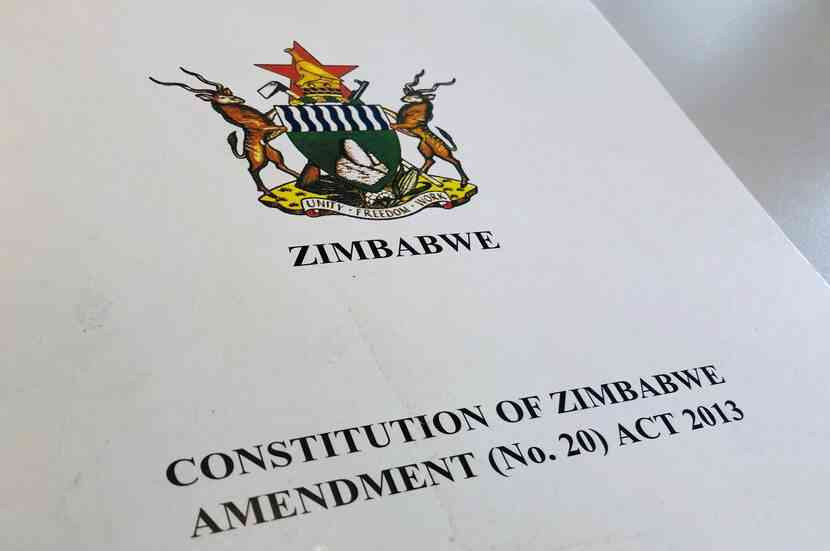
In the digital age, data has emerged as a valuable resource, fuelling innovation, economic growth and societal development.
Zimbabwe, like many countries, is increasingly relying on data analysis to address various challenges, from improving healthcare to enhancing public services.
However, the pervasive collection and analysis of personal data raise serious concerns about individual privacy, particularly in a context where regulatory frameworks and enforcement mechanisms may be limited.
The advantages of data analysis in Zimbabwe
Data analysis offers numerous benefits to Zimbabwe. In the healthcare sector, it can enable early disease detection, personalised treatment plans, and more efficient resource allocation.
For example, by analysing patient data, healthcare providers can identify trends and patterns that inform public health policies.
In agriculture, data analysis can help farmers optimise crop yields, monitor soil conditions and predict weather patterns.
In the public sector, data analysis can be used to improve service delivery, enhance transparency and combat corruption.
- Village Rhapsody: Data analysis in Zimbabwe: A balancing act between progress and privacy
- Indigenous churches honour Pathisa Nyathi
Keep Reading
For instance, by analysing traffic data, municipalities can optimise transportation networks and reduce congestion.
Additionally, data analysis can help governments identify areas where resources are needed most and allocate them accordingly.
For businesses, data analysis offers invaluable insights into customer behaviour, preferences, and needs.
By analysing customer data, companies can tailor their products and services to meet specific demands, enhance customer satisfaction, and drive sales. Moreover, data analysis can help businesses identify new market opportunities and optimise their operations.
The perils of data analysis in Zimbabwe
Despite its numerous benefits, data analysis also poses significant risks to individual privacy in Zimbabwe. One of the primary concerns is the potential for data breaches and unauthorised access to personal information.
Cybercriminals can exploit vulnerabilities in data systems to steal sensitive data, such as credit card numbers, social security numbers and medical records.
This can lead to identity theft, financial loss, and emotional distress.
Another major concern is the misuse of personal data for discriminatory purposes. Algorithms used in data analysis can perpetuate biases and discrimination based on factors such as race, gender, age, and religion.
For example, algorithms used in hiring decisions may inadvertently discriminate against certain groups if they are trained on biased data.
Notably, ahead of the 2018 and 2023 elections, many mobile phone users received unsolicited text messages from Zanu PF canvassing for votes. It remains unclear how the third party accessed users’ personal data, such as mobile numbers.
In July, the Media Institute of Southern Africa (Misa) launched a timely policy brief in the capital, sounding alarm on the country’s data protection gaps and highlighting the need for robust legislation to safeguard citizens’ privacy and security in the digital age.
“The significance of the launch is that we are bringing out the gaps within our data protection and privacy laws.
As we forge ahead with AI, we need to safeguard our legislation and ensure it addresses the major gaps.
The data laws should be stringent enough to protect people’s fundamental rights,” said Helen Sithole, Misa’s legal and ICT policy officer.
“To start with, we focus on data protection, then move on to privacy and surveillance because those are interlinked,” she added.
Innocent Mandongwe, a legal practitioner who helped to prepare the policy brief, highlighted critical areas of concern in the current legislation, including the Cyber and Data Protection Act and the Postal and Telecommunications Act.
The primary pieces of legislation regarding surveillance are the Interception of Communications Act and the Postal and Telecommunications Act.
Furthermore, the widespread collection and analysis of personal data can erode individual privacy and autonomy.
As more and more data is collected about our lives, it becomes increasingly difficult to maintain control over our personal information.
This can have a chilling effect on freedom of expression and association, as individuals may be hesitant to share their opinions or engage in certain activities for fear of surveillance or discrimination.
The role of mobile apps in data tracking in Zimbabwe
Mobile apps have become an integral part of our daily lives, providing access to a wide range of services and information.
However, many of these apps collect and track a significant amount of personal data, including our location, browsing history, contacts, and even biometric data.
Google and Gmail, for example, track our online activities to personalise advertisements and provide more relevant search results.
This tracking can reveal sensitive information about our interests, beliefs, and relationships.
Other apps, such as social media platforms, may collect data on our location, interactions with friends, and even our physical features.
While some data tracking is necessary for certain app functionalities, excessive data collection can pose a threat to privacy.
Users should be aware of the data collection practices of the apps they use and take steps to protect their personal information.
This may involve adjusting privacy settings, limiting app permissions, and being mindful of the information they share online.
Conclusion
Data analysis offers numerous advantages to Zimbabwe, but it also poses significant risks to individual privacy.
To ensure that the benefits of data analysis are realised while minimising the risks, it is essential to strike a balance between innovation and privacy protection.
This requires a combination of technological measures, regulatory frameworks, and public awareness.
Zimbabwe, where regulatory frameworks and enforcement mechanisms may be limited, it is particularly important to address privacy concerns.
Government agencies, businesses, and civil society organisations should work together to develop and implement comprehensive data protection laws and regulations.
Additionally, individuals should be empowered to make informed decisions about the information they share and the applications they use.
By striking a balance between progress and privacy, Zimbabwe can harness the power of data analysis while protecting the fundamental rights of its citizens.
*Gary Gerald Mtombeni is a journalist based in Harare. He writes here in his own personal capacity. For feedback Email [email protected]/ call- +263778861608










